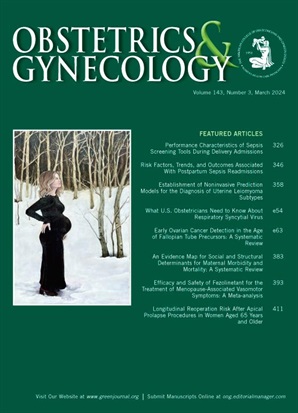手术报告在手术学习和记忆中的作用:一项随机对照试验。
IF 5.7
2区 医学
Q1 OBSTETRICS & GYNECOLOGY
引用次数: 0
摘要
目的探讨手术报告文件对外科医生手术步骤记忆能力的影响。方法对匹兹堡大学马吉妇女医院妇产科实习医师和主治医师进行随机对照试验。在学习阶段,参与者被引导完成一个50步的程序,使用蒙台梭利锁箱,照明交换机和简单的工具。手术后,参与者按训练水平分层,并随机分为三种写作练习:对照、模板式手术报告和自由式手术报告。在一周后的测试阶段,参与者被要求凭记忆完成这个过程。主要结果是测试阶段的表现得分(满分100分),次要结果包括手术报告的准确性、手术时间、预测的未来表现和文件的感知影响。结果48例受试者随机分为每组16例,退出率为0%。在测试阶段,模板化或自由式手术记录的完成显著改善了手术表现(对照组:平均50.9,标准差13.6;模板:均值60.9,标准差11.9;freestyle:平均62.1,SD 13.3;P < . 05)。此外,完成手术报告的参与者比对照组完成手术的速度更快(P < 0.05)。学习阶段的手术报告准确性与测试日表现显著相关(P < 0.005)。虽然大多数完成了操作报告的参与者认为文件对他们的表现有积极的影响,但这并没有转化为任务的感知难度或他们对测试日表现的预测的差异。结论手术报告文献可显著提高外科医生学习新手术后1周的手术记忆和任务完成时间。学员撰写手术报告可能是促进手术记忆和学习的一种手段,应将正式的手术报告教育纳入手术培训计划。本文章由计算机程序翻译,如有差异,请以英文原文为准。
Role of Operative Reports in Surgical Learning and Memory: A Randomized Controlled Trial.
OBJECTIVE
To evaluate the effect of operative report documentation on surgeons' ability to remember procedural steps.
METHODS
We conducted a randomized controlled trial of obstetrician-gynecologist trainee and attending surgeons at University of Pittsburgh Magee-Womens Hospital. During the learning phase, participants were guided through a 50-step procedure that used a Montessori lockbox, lighted switchboard, and simple tools. After the procedure, participants were stratified by training level and block randomized to one of three writing exercises: control, templated operative report, and freestyle operative report. During the testing phase 1 week later, participants were asked to complete the procedure from memory. The primary outcome was the testing phase performance score (out of 100 possible points), and secondary outcomes include operative report accuracy, procedure time, predicted future performance, and perceived influence of documentation.
RESULTS
Forty-eight participants were randomized to 16 participants per group, with 0% dropout. Completion of a templated or freestyle operative note resulted in significantly improved performance during the testing phase (control: mean 50.9, SD 13.6; template: mean 60.9, SD 11.9; freestyle: mean 62.1, SD 13.3; P <.05). In addition, participants who completed an operative report completed the procedure more quickly than those in the control group ( P <.05). Operative report accuracy during the learning phase was significantly correlated with testing day performance ( P <.005). Although the majority of participants who completed an operative report perceived that the documentation had a positive influence on their performance, this did not translate into differences in the perceived difficulty of the task or in their predictions for testing day performance.
CONCLUSION
Operative report documentation significantly improved surgeons' procedural memory and task completion time 1 week after learning a new procedure. Trainee-written operative reports may be one means of promoting surgical memory and learning, and formal operative report education should be incorporated into surgical training programs.
求助全文
通过发布文献求助,成功后即可免费获取论文全文。
去求助
来源期刊

Obstetrics and gynecology
医学-妇产科学
CiteScore
11.10
自引率
4.20%
发文量
867
审稿时长
1 months
期刊介绍:
"Obstetrics & Gynecology," affectionately known as "The Green Journal," is the official publication of the American College of Obstetricians and Gynecologists (ACOG). Since its inception in 1953, the journal has been dedicated to advancing the clinical practice of obstetrics and gynecology, as well as related fields. The journal's mission is to promote excellence in these areas by publishing a diverse range of articles that cover translational and clinical topics.
"Obstetrics & Gynecology" provides a platform for the dissemination of evidence-based research, clinical guidelines, and expert opinions that are essential for the continuous improvement of women's health care. The journal's content is designed to inform and educate obstetricians, gynecologists, and other healthcare professionals, ensuring that they stay abreast of the latest developments and best practices in their field.
 求助内容:
求助内容: 应助结果提醒方式:
应助结果提醒方式:


